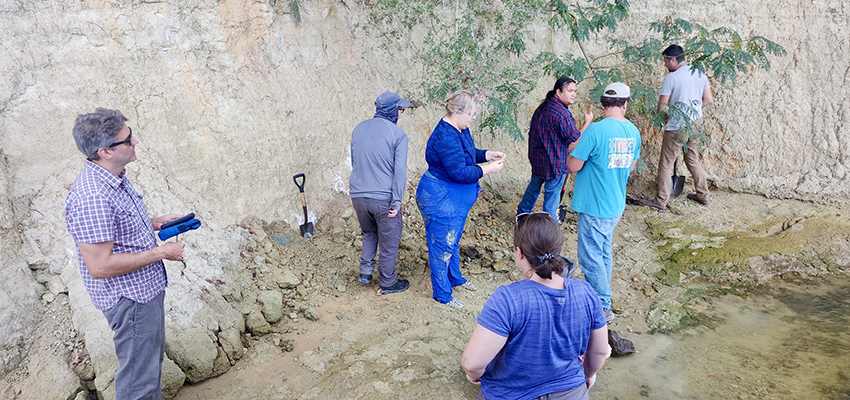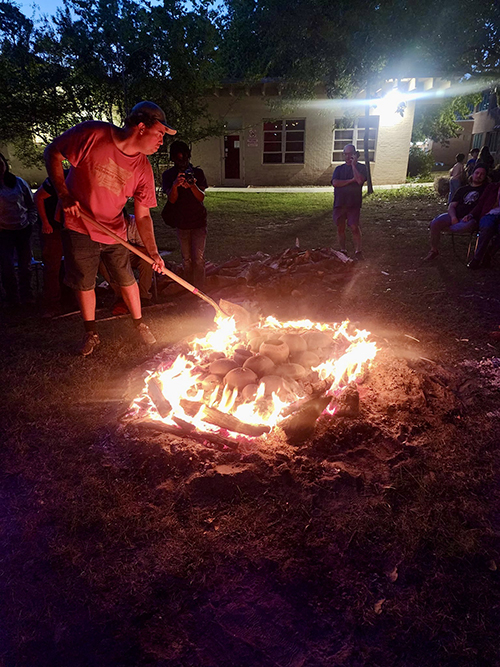Choctaw Indigenous Potters Visit Campus
Posted on October 18, 2023 by Marketing and Communications

The University of South Alabama and Mobile-area communities had a rare opportunity to witness the work of Indigenous potters from Choctaw Nation of Oklahoma during the first week in October.
The project, Braiding Knowledge in Mobile Bay: Collaborative Research on Indigenous Art Traditions, was led by South Associate Professor of Anthropology Dr. Erin Nelson and funded by USA’s Social Justice Research Initiative.
"We're excited to work with potters from Choctaw Nation,” Nelson said. “As archaeologists we typically only get to see the end product of people’s work - bits of broken pottery that survive in the archaeological record. Witnessing the process of making pots, cooking a meal, really adds a personal dimension to our interpretations of the past.”
Oftentimes scientific evidence is valued over Indigenous knowledge, but Nelson partnered with Choctaw Nation so that both their Indigenous traditions and her scientific methods carry equal weight when studying pottery found at archaeological sites.
The Choctaw potters sourced local pottery-making clays that their ancestors, who lived in this area, may have used. They analyzed pottery excavated from archaeological sites and created pottery using traditional knowledge.
“I don’t think any of us have had the opportunity to use Mobile area clays before,” said Dr. Ian Thompson, a tribal historic preservation officer and senior director of Choctaw Nation’s Historic Preservation Department. “Along with trying new clays from the Choctaw home area, we always relish the opportunity to see more ancestral pottery and to learn more nuances of technique."
 Faculty and students joined together for an open pit pottery firing at the USA Archaeology
Museum's Native Plants Garden with the Choctaw Nation of Oklahoma.
Faculty and students joined together for an open pit pottery firing at the USA Archaeology
Museum's Native Plants Garden with the Choctaw Nation of Oklahoma.
Thompson presented “Out of the Earth: Revitalizing Choctaw Traditional Art” at South’s Alabama Marx Library Tuesday, Oct. 3. He also presented this talk at the Eastern Shore Arts Center in Fairhope on Wednesday, Oct. 4.
“Traditional pottery never completely died out at Choctaw Nation, but we’ve been working to revitalize it into something more vibrant in recent years,” Thompson said. “The roots of Choctaw pottery go back 100 generations and span several states.”
The public was invited to attend two events at the Native Plants Garden at the University of South Alabama Archaeology Museum between Oct. 6-7. Members of Choctaw Nation recreated Choctaw dishes using traditional cooking methods. They also demonstrated traditional open pit firing of clay vessels. During Alabama Archaeology Day at the museum, members of Choctaw Nation shared traditional Choctaw pottery-making and flint-knapping techniques with visitors.
The Social Justice Research Initiative, which supports faculty research efforts on social justice, is sponsored by the Office of Research and Economic Development; the Office of Diversity, Equity, and Inclusion; the Office of Development and Alumni Affairs; and the Division of Academic Affairs.
